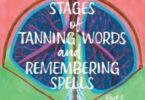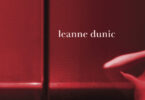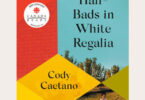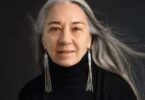by Matthew Walsh
Sarah Ellis is a YA and children’s literature writer whose work has garnered her some notable awards, including the Lieutenant Governor’s Award for Literary Excellence and the Governor General’s Award for Children’s Literature. She has also worked as a librarian in Toronto and Vancouver. Ellis says she gets her ideas for stories and character in dreams, newspapers, on the radio and stories people tell her. I got to sit down with Sarah and talk to her about writing for children, YA fiction, and the diversity she sees in this genre.
 When you have an idea for a project, what are some of the first things you do as a writer? Do you begin a sketch of the first few chapters?
When you have an idea for a project, what are some of the first things you do as a writer? Do you begin a sketch of the first few chapters?
My “method” is highly disorganized. When I get an idea, which usually involves a couple of characters and some kind of situation, I just start writing random scenes. I discover my plot and characters as I go. I would not recommend this method to anybody. It is inefficient, wasteful and there’s no safety net. It is, however, the method that works for me.
What are the benefits of outlining a project–a novel, for instance–to the writing process?
The benefits are huge: you know where you’re going and you can keep track of considerations like story arc. I imagine that it gives you confidence. But I wouldn’t know because outlining doesn’t work for me. If I know what’s going to happen, I’m too bored to write it. (Note: we’re talking about fiction here. In other kinds of writing, such as a review or an essay or speech, something that has a logical argument and shape, I’m a serious and enthusiastic outliner.)
What are some writing approaches you use when you are trying to figure out your characters?
If I’m setting the story in the past I do “research.” If I can find primary sources such as letters, memoirs, photographs, etc., that brings me closer to my characters. When I start to feel confident about their world I start to feel closer to them. In all settings I find myself looking for contradictions. Mehitabel is shy except for … Leonardo hates authority except for … It is in contradiction that my characters start to be real to me.
How have you seen YA change over the years? How do you write about difficult issues for children?
Here are the recent changes I’ve noticed: 1. A huge rise in the number of fantasy/speculative fiction/series books. 2. A reliance on a particular tone, first person, present tense, confessional. 3. The new label of “new adult.” As far as I can see all this means is adult genre fiction (romance, horror) repackaged.
Since “young adult” became a genre it has always dealt with difficult issues. It appears to me, and here I’m going to risk sounding fuddy-duddy, that the treatment of these issues now tends to be more neon than nuanced. Of course there are exceptions.
How do I write about difficult issues for children? I hope I do it with honesty and art.
 Do you feel that the YA genre is becoming more diverse in the types of stories we are seeing being published? What are some new books that you have enjoyed?
Do you feel that the YA genre is becoming more diverse in the types of stories we are seeing being published? What are some new books that you have enjoyed?
Yes. Finally. Thank goodness. What have I read recently? Rita Williams Garcia’s Jumped, a gritty high school story and her One Crazy Summer, a funny, warm middle-grade novel. In both I felt as though I was being given a privileged look into worlds that I had had no idea about, or inaccurate ideas about. I’m not overly bothered about imposed rules about cultural appropriation but there’s nothing like the power of stories that come from within a culture.
What are some of your favourite books on writing creatively that have helped you, or that you would recommend to emerging writers?
Ursula K. LeGuin’s Steering the Craft is my number one resource. (I hear there is going to be a new edition soon.) The Elements of Style is constantly by my side and Mary Oliver’s A Poetry Handbook, even though I don’t write poetry (well, I do, but not for publication) because of her approach to language. I also enjoy memoirs and biographies of writers. Things like Bird by Bird and anything by Annie Dillard. When I really want to stretch my brain I go to Alone With all That Could Happen: Rethinking Conventional Wisdom About the Craft of Fiction Writing by David Jauss.
What do you find is the most difficult part of writing, aside from writer’s block, of course?
Plot. I have a dysfunctional relationship with plot. I’ve tried many ways to get on better terms with plot such as reading how-to books on plot (worse than useless in my case), listening to lectures on plot (enjoyable but don’t translate into my own practice) and forcing myself to do those plot diagrams (which just make me grumpy). I suspect, at this point, that plot and I just have to agree to disagree.
Do you have any tips about how to maintain momentum within the plot itself?
For me it’s all linked to character. I have to want something for my character, some kind of growth, even if she doesn’t yet know herself that she wants this. Once I figure this out I can make sure that each scene and each detail somehow relates to that desire.
Any other advice you would give young writers about writing?
Enjoy it. Enjoy writing emails, lists, tweets, notes to a friend. Savour the sound and look of the words. Write with coloured markers. Experiment with all the fonts on your computer. Write down your dreams. Write new words to a song. Invent words. Invent a language. Don’t worry about editing. (Teachers hate it when I give this advice but, honestly, editing has to come from within. You have to want to make something better. Kids who are going to become writers will discover that urge. I got it young, experimenting with massaging the words, getting it just right. But kids who aren’t going to be writers can still enjoy the role of writing in their lives.)
Matthew Walsh is a writer from Nova Scotia. You can catch his stuff in new issues of Qwerty, Johnathan Magazine, The Quotable, and The Steel Chisel.






